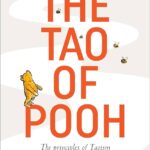Welcome to Thinkers Books, your gateway to the transformative power of literature. Today, we delve into an enlightening exploration of the complex world of finance with the remarkable book ‘The Psychology of Money’ by Morgan Housel. As we journey through this compelling narrative, prepare to unravel the intricate interplay between money, psychology, and personal finance.
‘The Psychology of Money’ is a tour de force that lifts the veil on how our emotions, beliefs, and behaviours around money shape our financial decisions and outcomes. Morgan Housel, an acclaimed financial journalist and investor, navigates us through the labyrinth of finance, spotlighting the often-overlooked psychological dimensions. The book traverses a broad spectrum of topics, from risk tolerance and long-term thinking to wealth accumulation and financial independence. It’s peppered with real-life examples and practical techniques, making it relatable and actionable.
This summary will unpack the book’s key concepts, case studies, and takeaways. So sit back, relax, and let’s dive into the world of ‘The Psychology of Money.’
First learning point: Money is about personal values and emotions. Housel underscores that money extends beyond numbers and calculations; it’s inextricably linked with our values, feelings, and experiences. Understanding our emotional relationship with money is pivotal for improving financial decisions. By acknowledging our biases and practising self-awareness, we can make more informed choices and sidestep common pitfalls.
Second learning point: The importance of adopting a long-term perspective. Housel emphasises the significance of a long-term mindset in personal finance and investing. He elucidates that short-term market fluctuations are unpredictable, but the general trend over time is upward. By focusing on long-term goals and demonstrating patience, we can harness the power of compounding and chart a path to financial success.
Third learning point: Recognize the role of luck and risk in financial outcomes. Housel highlights the often-underestimated influence of uncertainty and risk in our financial lives. Acknowledging these factors helps us maintain a humble and realistic approach to money management. Understanding that not all successes and failures are entirely within our control enables better decision-making and fosters compassion towards ourselves and others.
Fourth learning point: Save money to gain flexibility and options. Housel underlines the importance of saving money to create flexibility in our lives. A financial cushion equips us to seize opportunities, weather unexpected storms, and ultimately secure greater freedom and peace of mind.
Fifth learning point: Financial independence is about control, not just wealth. Housel redefines financial independence as control over our time and decisions rather than the mere accumulation of wealth. He advocates building a financial foundation that upholds our values and priorities, empowering us to live on our terms.
‘The Psychology of Money’ is a powerful exploration that challenges conventional wisdom and illuminates the emotional facets of personal finance. Its strength lies in its engaging storytelling, practical advice, and insightful examination of human psychology.
On a personal note, this book has been a revelation. It has transformed my perception of money and illuminated my biases and blind spots. I wholeheartedly recommend it to anyone seeking to enhance their financial decision-making and cultivate a healthier relationship with money.
As we conclude our exploration of ‘The Psychology of Money,’ we invite you to continue your journey of discovery with more insightful summaries from Thinkers Books. And remember, in the words of Morgan Housel, “Doing well with money has a little to do with how smart you are and a lot to do with how you behave.” So let’s take charge of our financial behaviour and pave the way for a prosperous future. Until next time, keep reading, keep learning, and keep growing.







